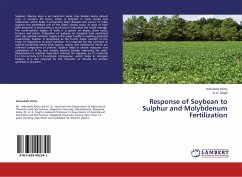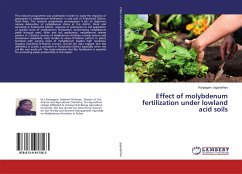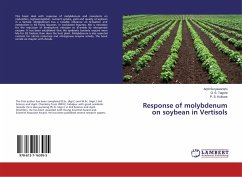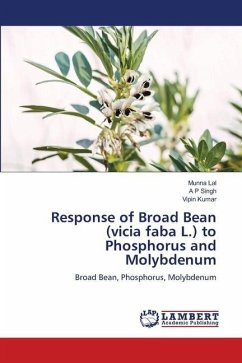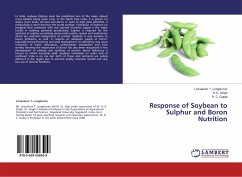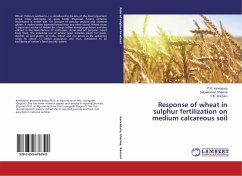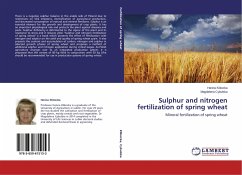Soybean (Glycine max) is an important pulse crop besides being oilseed crop. It contains 5% lysine, which is deficient in most cereals and isoflavones, which helps in preventing heart diseases and cancer. In India soybean has established one of the major oilseed crops. In spite of high yield potential, it productivity is much less in India than the world average. The north-eastern region of India it is grown on slopes, jhum lands, terraces and plains. Cultivation of soybean on marginal land combined with sub optimal nutrients supply is the major hurdle in realising potential productivity. Sulphur is recognized as the fourth major nutrient in the order of importance to plant nutrition. It is required for the synthesis of sulphur-containing amino-acids cystine, cystein and methionine which are essential components of protein. Sulphur helps in nitrate reduction and assimilation of N by root nodule bacteria besides improving the yield. Molybdenum is another important nutrient for legumes, as it is essential for the activity of the enzyme nitrogenase, which helps in nitrogen fixation. It is also required for the reduction of nitrates for protein synthesis in all plants.
Bitte wählen Sie Ihr Anliegen aus.
Rechnungen
Retourenschein anfordern
Bestellstatus
Storno

